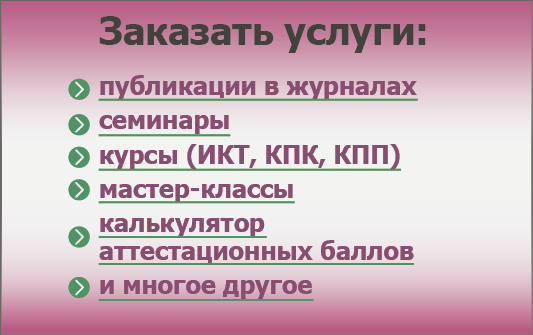Практические задания для формирования коммуникативной компетенции по английскому языку на примере интерпретации стихотворения «Зима» из комедии «Бесплодные усилия любви» У. Шекспира.
(В рамках спецкурса – 8-й класс)
Цель: Разгадать секрет успеха стихотворения У.Шекспира «Зима»
Задачи:- Уточнить понятие поэзии. а) Кчему она ближе: к прозе или музыке? б) Всегда ли она красива?
-Рассмотреть связь исторической эпохи написания стихотворения его содержанием и средствами выразительности.
-Выделить реалистически-бытовые и комические детали в описании зимы и сниженные детали в описании кухни.
-Определить тон стихотворения и какую эмоциональную ноту вносит крик совы.
-Практиковать интерпретацию поэтического произведения, учитывая тон
стихотворения.
-Проанализировать черты стихотворения, которые уподобляют его песне.
-Раскрыть особенности истинной поэзии и секрет успеха стихотворения
несмотря на прозаичностьтемы и реалистический характер
-Самостоятельное творчество. (стихи, музыкальные композиции, диалоги,
рассказы, эссе, иллюстрации)
-Умение видеть средства выразительности.
- Участие в дискуссии.
План:
1.Организация деятельности по принятию цели. Повторение материала предыдущего урока. (О понятии поэзии.)
2.Краткая характеристика исторической эпохи написания стихотворения и комедии «Бесплодные усилия любви». Поиск деталей быта английской деревни XVI века и описания зимы.
3.Перенос событий на наше время. (Если бы У.Шекспир жил в наше время и в нашей стране…).
4.Поиск и анализ средств экспрессивности.
5.Определение тона стихотворения и какую эмоциональную ноту вносит крик совы. Интерпретация во время инсценировки с учетом тона стихотворения.
6.Поиск рифмовок и схожести их с песней. Музыкальное исполнение стихотворения. 8.Дискуссия с целью найти секрет успеха стихотворения.
9.Итог. Уровень достижения цели.
Ход: Hello. How are you doing? I hope you are all well today. Now let’s get down to some work and run through the topic of our previous lesson. Poetry. You know that poetry is a kind of language that says more, and more strongly, which has been written, read or listened to in all ages and countries. Why? Last time we decided that poetry gives pleasure. People liked it, it gave them enjoyment. It exists to bring a sense and understanding of life. Do you think poetry is always beautiful? Try to remember some pieces of Russian poets about winter (it was your home task). Isn’t that beautiful?
The subject of today’s discussion is the poem by W. Shakespeare which is taken from his comedy «Love’s Labour’s Lost», called «Winter». At the lesson we’ll try to evaluate it and to find the secrets of its popularity. Do you have a special mood for such kind of work?
Thank you, to start with I should mention that we must always be cautious about identifying anything in a poem with the biography of a poet, though we have studied it carefully. Setting in time and place can help us in our talk. I would like to invite you to the XVI-th century, to the age of W. Shakespeare. What parts of the text describe this period more vividly?
Lots of fun everywhere, dancing, music and a song of a jester, a kind of a full man. The purpose is to give us a series of concrete homely details of winter life around XVI century English country house. They are given in contrast, what are they?
Now imagine that W. Shakespeare is at our place. What details you suppose he would take for the song of a jester?
Thank you. You have plenty of ideas. By what other means is the purpose achieved? What is the role of definite articles? (They are used to show that things or people expressed by the nouns are definite, real). A lot of names «Dick, Joan, Marian» are to show a definite village with real people, where everybody knows a shepherd, a kitchen made, a servant girl by name. All this make a bright, realistic picture of winter.
Think over about the tone of the poem, its note, who represents it? An owl. It’s a mournful, frightful, merry note. The owl’s cry is not really a merry note and it can’t sing. These words are used as a kind of an English humor to show that the poem is really gay and that Christmas is coming. It is a kind of a hymn maintained by the owl to show you could experience this winter life yourself with the help of this poem. I would like you to paraphrase and dramatize it in your own way. (A group work) Thank you, it was well done.
It is ineffective to try to understand poetry without troubling to interpret it in your own language, to choose necessary words and to express your own feelings of the poem in order to make it clearer. Moreover there exists only one interpretation of this poem in Russian by S.Marshak. All of you have done it, would you like to introduce your works? Well done. Are you interested in Marshak’s variant? Listen to it.
Poetry is a kind of art and is connected with songs and music. What features of the poem show that it may be a song? You were asked to find or to make music for this poem. Would you like to have a try?
Итог: Some readers think that poetry deals exclusively with beauty, flowers, butterflies, love and so on. For such readers poetry is the enjoyment only, sweet of ordinary life. What do you think about it? It is too narrow for poetry. The function of poetry is something to be ugly rather than beautiful. It may deal with common colds and greasy kitchen maids. This exists to bring us a sense and understanding of life, to widen and sharpen our contracts with existence, to know the experience of others and to know better our own experience. It creates feeling of reality and gives opportunity to participate in it, to understand our own world.
The poem «Winter» by W. Shakespeare was popular for five centuries. It represents not pleasant, ugly things, but it is real poetry, because it is true to life that is not always beautiful. And this is the secret of its popularity.
Виды упражнений и заданий для контроля развития умений интерпретации:
- Complete the summary of the events described in the poem.
- What are the ways of drawing the readers’ attention to the words which are emphasized?
- What devices of comparison are used by the poet?
- Say if you would agree or disagree with the ideas expressed in the passage.
- Write character-sketches of the characters.
- Make an illustrated dictionary of the list of characters.
- Comment on the most important dates in the times of the writer.
- Write a brief description of the plot.
- Dramatize the poem.
- Try to guess the meaning of the following words and phrases.
- Write 10 questions asking your teacher or partner about the times of the author.
- Discuss the following….
-Give your own translation version of the poem.
- Choose the most general word in the set.
- Predict what will follow.
- Role-play an interview with…using the ideas below.
- Paraphrase the following sentences….
- Give Russian equivalents.
- Find some other way of expressing the following.
- Retell the poem as it would be told by…..
- Prove the following fact.
- Write a brief summary.
- Compare two characters.
- Whose feelings are in the focus the poet’s attention?
- Comment on the title of the poem.
- Analyze the main idea of the poem.
- Does the poet sympathize with the hero?
- What does the poet mean by saying?
- Who would you recommend to read the poem?
Глоссарий: Blows his nail – warms hands, nipped – bite, pinch, keel - skim, to remove something, to cool, saw – a saying, raw – with the skin rubbed of, sore and painful, crabs – crab apples hard, sour fruit of wiled apple-tree, shepherd – herdsman, drown – sink, brooding – flock, hiss – whistle, parson – priest.
Варианты интерпретации стихотворения «Зима» У.Шекспира на русском языке учениками 8-Б класса МАОУ «Гимназии №7»:
Так холодно, к стене примерзает рука, так холодно, стынет в ладонях кровь.
Молоко замерзает в вёдрах, мы рубим дрова вновь и вновь.
Хотим, чтобы стало теплее, тепло создаёт уют, чтоб всякий странник бездомный
нашел в нашем доме приют.
А в доме нас всех немного: Дик, Том, Марианна и я, и толстый наш Джон-гончар с нами
- вот наша большая семья.
И ветер всё громче воет, и птицы мёрзнут в снегу
И нос Марианны красный, мне жаль, что помочь не могу
И только сова в своих песнях, вселяет в нас всех надежду
Что скоро настанет пора – придёт наконец-то жара.
Александра Чикилева
Когда букет сосулек на стене, и Дик, на руки дышит, согревая,
Том-медвежатник в дом зайдёт извне, и молоко замёрзнет, в льдинки превращаясь,
Остынет кровь, замёрзнут все пути – споёт нам песню ночь своей судьбы.
Кому-то, кто-то, вот ведь счастья ноты! Джоан, забудь скорей свои заботы!
Когда всех обдувает сильный ветер, и слышен кашель сквозь шумиху эту
И птицы на снегу все замерзают, и нос Мари такой большой и красный, как краб,
что на огне пылает, вновь начнётся ночи песнь веков. Забудь, Джоан, скорей
Свои заботы, кому-то, кто-то, вот ведь счастья ноты!
Дарья Безденежных
Список литературы:
-Love’s Labour’s Lost by W.Shakespeare С. – П. 1906
-Кухаренко В.А. Интерпретация текста. М. – 1979
- Пелевина Н.Ф. Стилистический анализ художественного текста. М. – 1986
- Елухина Н.В, Тихомирова Е.В. Контроль устного неофициального общения на иностранном языке// Иностранные языки в школе №2 – 98
-Пинягин Ю.Н. Великобритания: страноведческий очерк. – Пермь 1996
-Мурзин Н.Л, Сметюк И.Н. Как обучать языку? (об основах лингводидактики) Пермь – 1994
-Лингвистические и методические аспекты текста: Межвуз. Сб. науч.тр/ Перм. Ун-т, Пермь 1996










